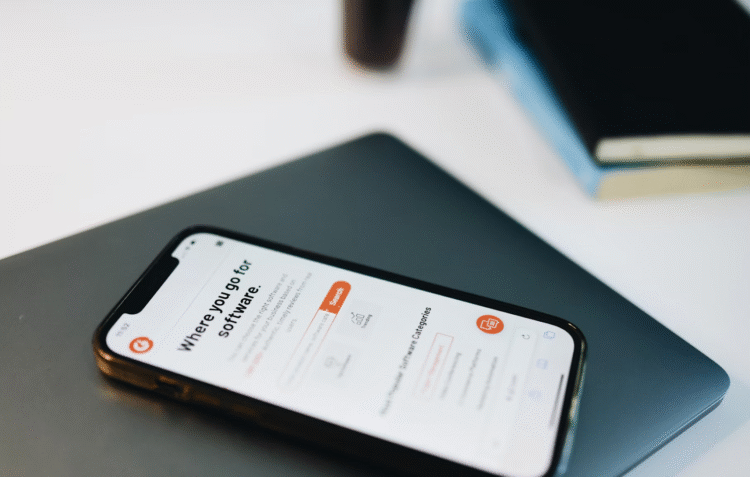
Cellphone Services Explained: What Remote Workers and Freelancers Should Know
In today’s mobile-first world, cellphone services have become more than a personal convenience—they are a professional necessity. For freelancers and remote workers, a cellphone is often the central hub for communication, project coordination, and client interaction. The reliability of those services can directly influence productivity, client satisfaction, and overall business success.
Understanding what cellphone services include, how they vary across providers, and what features to prioritize can help independent professionals make better decisions. By doing so, freelancers and remote employees can ensure they stay connected without facing costly disruptions or service limitations that slow their work.
Defining Cellphone Services
At their core, cellphone services include three primary elements: calling, messaging, and data. These are delivered through mobile networks managed by providers, giving users the ability to make voice calls, send SMS or MMS messages, and access the internet from virtually anywhere.
For personal users, these features are often about convenience—staying in touch with friends, streaming videos, or browsing social media. For remote professionals, however, the stakes are higher. Cellphone services make it possible to conduct video meetings, send large project files, and manage client relationships in real time. They also allow access to cloud-based software platforms that many freelancers rely on to organize workflows and collaborate across time zones.
Put simply, cellphone services form the technological backbone that supports modern freelance work. Without strong services in place, even the most talented professional may struggle to deliver reliably.
Why Cellphone Services Matter for Remote Work
Unlike employees in traditional office environments, freelancers and remote workers typically operate without enterprise-level internet connections, in-house IT departments, or corporate infrastructure. This independence is empowering, but it also means that cellphone services often double as both a primary connection and a backup plan.
For example, if a home internet outage occurs during a scheduled video call, a mobile hotspot can ensure the meeting goes on without interruption. Similarly, strong voice service allows freelancers to take important client calls on the go—whether they are working from a co-working space, a library, or a coffee shop.
More importantly, reliable cellphone services directly affect how clients perceive professionalism. A dropped call or delayed response may seem minor, but over time it can impact trust. By investing in dependable cellphone services, remote workers send a clear message: their work and their clients are a priority.
The Role of Coverage and Connectivity
Coverage is the foundation of cellphone services. While most providers advertise nationwide or even global reach, coverage strength varies significantly depending on geography. Urban areas tend to enjoy stronger service with multiple providers, while rural or remote locations may experience dead zones or weaker connections.
Freelancers should take time to research how providers perform in their specific area. Provider coverage maps are helpful, but they don’t always reflect the full picture. Local reviews, peer feedback, or even testing a prepaid plan before committing to a contract can provide more accurate insights.
Coverage also matters for professionals who travel frequently. For example, a freelance consultant who works with clients in different cities—or even different countries—needs a provider that offers strong roaming agreements and affordable international options. Without these, staying connected can quickly become expensive and inconsistent.
Speed and Data Reliability
The modern freelance workflow demands more than just reliable voice calls. Most independent professionals depend heavily on mobile data, using it to upload designs, share documents, or stream live presentations. In this context, speed and reliability become critical.
The rollout of 5G services promises faster speeds and lower latency, making mobile work even more seamless. However, 5G coverage is still uneven, particularly outside large metropolitan areas. For many freelancers, 4G LTE remains the primary network, which means evaluating its consistency and speed is just as important as looking at newer technologies.
Another consideration is data throttling. Some providers reduce data speeds after users reach a monthly cap, even on “unlimited” plans. For a freelancer who relies on mobile data during busy periods, this slowdown could mean the difference between meeting a deadline and missing one. Reading the fine print of service agreements ensures there are no surprises.
Cost and Plan Options
For freelancers managing variable income, the cost of cellphone services can weigh heavily on monthly budgets. Fortunately, providers offer a wide variety of plans that cater to different needs.
Prepaid plans are ideal for professionals who want flexibility and control. They eliminate long-term contracts and allow users to adjust their usage month to month, which is particularly useful for freelancers who may have lighter workloads in some seasons and heavier ones in others.
Postpaid plans, though often more expensive, come with benefits such as unlimited data, device financing, and bundled extras like streaming subscriptions. For those who use their phones primarily for work, these features may provide added value.
International freelancers should also weigh the cost of roaming or international calling. A plan that includes affordable global options can save significant money over time while ensuring uninterrupted communication with clients abroad.
Ultimately, the best plan balances affordability with the professional features that support daily productivity.
Support and Security Considerations
Independent workers often lack access to corporate IT teams, which makes the quality of provider support especially important. Whether it’s troubleshooting a dropped connection or resolving billing issues, responsive customer service can save hours of frustration and prevent lost work time. Evaluating whether a provider offers support through multiple channels—phone, chat, and mobile apps—helps ensure that assistance is always within reach.
Security is another growing priority in cellphone services. Freelancers handle sensitive client information, from contracts to proprietary files. Many providers now offer security features such as spam call blocking, fraud detection, and secure Wi-Fi calling. Compatibility with virtual private networks (VPNs) also adds an extra layer of protection, allowing freelancers to safeguard data even when working on public networks.



